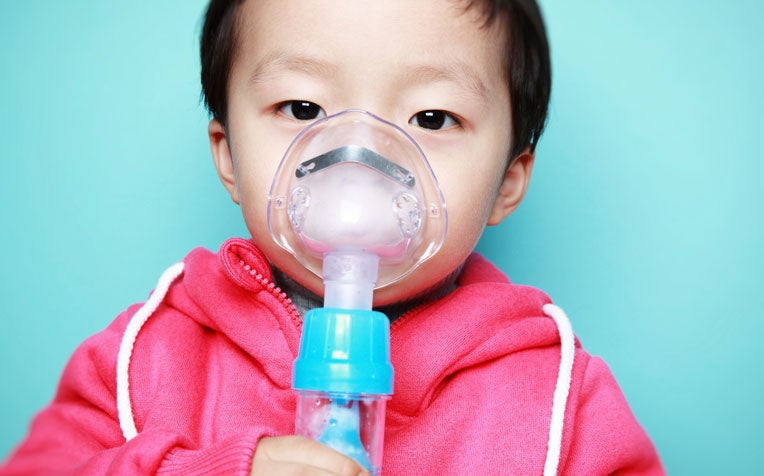1. Asthma can resurface in adulthood even after years of dormancy, triggered by environmental changes or health conditions.
2. SingHealth Polyclinics have implemented rapid response programs for asthma patients, providing quick treatment and education.
3. Asthma cases are increasing in Singapore, with patients empowered to manage their condition through personalized action plans.

Asthma Tips for parents of children with asthma.
Asthma is a disease resulting from chronic inflammation of the airways. Asthma in children is estimated to about 20 per cent in Singapore.
Common symptoms of asthma are recurrent wheezing, shortness of breath, chest tightness, and cough.
Asthma symptoms may be triggered by different factors, ranging from external factors such as airborne pollutants/irritants (e.g. haze, tobacco smoke) and allergens (e.g. house dust mites, animal dander) to physical activity and emotional factors (e.g. anxiety, stress).
There is at present no known cure for asthma but with appropriate treatment, most children with asthma can lead normal lives.
“Identifying and reducing exposure to avoidable triggers such as tobacco smoke and animal dander may help to improve the asthma control of children” says Clinical Associate Professor Teoh Oon Hoe, Senior Consultant from the Respiratory Medicine Service at KK Women’s and Children’s Hospital (KKH), a member of the SingHealth group.
Children with asthma: Do's and don'ts
Children with asthma can still lead an active and healthy life, and are encouraged to participate in exercise and physical activity unless their asthma is not controlled, or they are having asthma symptoms before the physical activity/exercise.
There are 2 types of asthma medications:
Reliever (bronchodilator) medicationsHelp the child breathe better by opening up the airways during an asthma flare-up
Used only when the child has asthma symptoms/flare ups
All children with asthma are advised to have a reliever medication with them wherever they go, for use when there is an unexpected asthma flare-up.
Controller (anti-inflammatory) medications
Administered daily to reduce the inflammation in the airways, and reduce the frequency and severity of asthma symptoms and flare-ups
For children with asthma that is not well controlled, with frequent/persistent/severe asthma symptoms/flare-ups
Should be administered daily, and are usually maintained over months or years when prescribed by the doctor
Never stop medication without your doctor’s advice. Chronic asthma requires long-term treatment.
Children with asthma requiring treatment with controller therapy should be reviewed regularly by the doctor, who will formulate a management plan based on the child’s progress.
Asthma triggers and prevention/avoidance tips
Viral infections:
Build up a healthy immune system with balanced nutrition, good sleep and regular exercise/physical activity.
Basic hygiene practices e.g. hand washing.
Influenza vaccination.
Tobacco smoke
Smoking cessation for smokers in the family.
Smoke free home/car by establishing smoking rules in the household.
Animal dander
Consider seriously before buying a furry or feathery pet if there is a family history of allergies/asthma.
Keep pets out of the bedroom if your child has asthma.
Mould
Keep the house well ventilated.
Treat damp and mould on the walls/ceiling quickly.
Dust mites
Wash all beddings in hot water (60°C or higher) weekly.
Avoid stuffed toys, pick toys that can be washed.
Consider dust mite mattress and pillow case protectors.
What to do if your child has an asthma attack
Stay calm and be with your child.
Get your child to sit in an upright position.
Loosen any tight clothing to allow your child to breathe better.
Administer the reliever medications immediately following the asthma action plan.
If the symptoms do not improve or wheezing returns within four hours, seek medical treatment immediately.
Ref: Q15
Related articles:
How to Survive an Asthma Attack if Caught Without an Inhaler
Contributed by















 Get it on Google Play
Get it on Google Play